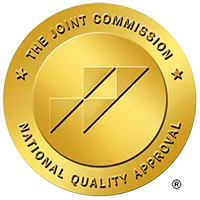Breaking Down The Tenth Step of Alcoholics Anonymous
If we take a closer look at the tenth step of Alcoholics Anonymous, it can be seen as the culmination of the successful completion of Steps four through nine. An excellent description of the tenth step in regards to how the previous few steps fit into it can be seen in the Big Book of Alcoholics Anonymous. A brilliant breakdown of the following passage can be found on the Tao of Recovery website:
“Continue to watch for selfishness, dishonesty, resentment, and fear (4th Step). Whenthese crop up (6th Step), we ask God at once to remove them (7th Step). We discuss them with someone immediately (5th Step) and make amends quickly (9th Step) if we have harmed anyone (8th Step). Then we resolutely turn our thoughts to someone we can help. Love and tolerance of others is our code.”
If we really take a closer look at what the Tenth Step of Alcoholics Anonymous is telling us, we must incorporate important tools that were learned in previous steps into our daily lives. These tools include performing a daily personal inventory, identifying those personal defects of character that need work, andmaking amends to those we have harmed or done wrong.
Progress, Not Perfection
If you have been around the tables of AA long enough, you know there are plenty of common sayings that are stated in one form or another during every meeting. The tenth step of Alcoholics Anonymous introduces the tried and true philosophy of progress, not perfection. This saying may seem overstated–and maybe even a little cliche–but it an important saying nevertheless. Progress, not perfection can be seen as the recovery equivalent of practice makes perfect in the fact that we must try and work our own program of recovery in the face of stresses of everyday life to the best of our ability.
When you progress in our recovery, you make it a point to take time each day to draw up your personal inventory (as was learned in step four) in order to figure our where exactly you are at, where you are going, where you want to go, and what you need to do in order to move past any obstacles that may impede your progress.
When you reflect on your daily personal inventory, you must realize that we aren’t perfect beings and that you will make mistakes. You ultimate goal is to do the best we can when we can and problems will eventually work themselves out.
By continuing to take your personal inventory, you are remembering that you must try to make things right with those you may have hurt along the way. You are bound to mess up along our recovery journey–and you can mess up a lot. True progress can be measured if we make every attempt to make amends to those you have wronged. If you habitually hurt people and move forward without making those amends–you are not progressing and you are sabotaging your effort to get spiritually healthy.
The Bottom Line
So, what it the bottom line message conveyed in the 10th step of Alcoholics Anonymous and other 12-step groups? What does making a daily personal inventory and keeping spiritual progress front and center help in our recovery? When you work the 10th step, you are preventing toxic emotions and attitudes such as self-pity, shame and irrational fears from appearing in your life and wreaking havoc on your recovery. You be must diligent in working a solid program of recovery and practice the principles outlined in the steps; there is no time to rest on your laurels or have the thought that your work in recovery in done.
Working an individual program of recovery is an ongoing process that is never done.
When you consistently perform a personal inventory on a daily basis and work on yourself through a candid and honest self-appraisal, the need to make amends for your mistakes towards others becomes minimal. When you focus on yourself, we find that your moral consciousness grows stronger and you become more in tune in how your actions and attitudes not only affect our own lives but the lives of those around us. Repeating the same mistakes over and over without making the proper amends (wherever appropriate) will do nothing but keep you stuck in your recovery.
Through personal inventories, you can learn the art of self-restraint in your recovery. With self-restraint, you as a person in recovery will learn that responding thoughtfully is better than mindlessly reacting to situations and regretting those reactions down the road. Most importantly, when you work the 10th step, you realize that you must go with the flow of what life brings you and work on what you can handle at that moment. That is truly living and accepting life on life’s terms.
Original Article re-printed here with permission from SoberNation.com
Red Rock Recovery Center is a Colorado state licensed substance abuse extended care treatment program designed to help you or your loved one recover from the struggles associated with alcoholism and drug addiction. Located in Denver, Colorado we offer a safe haven for those afflicted by the ravages of untreated addiction. Our program is based on a compassionate 12-step model that applies behavioral as well as life skill therapies, which will enable our clients to heal and recover.
#recovery #drugrehab #redrockrecovery




